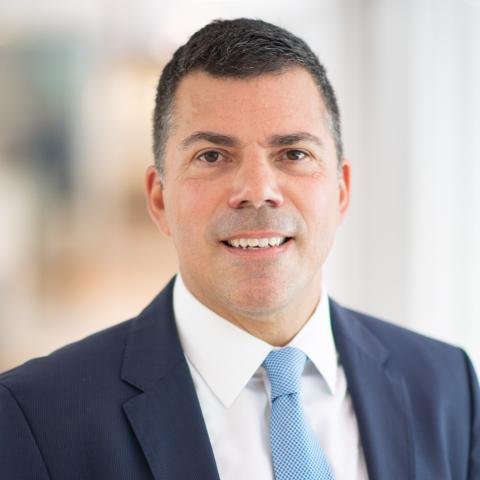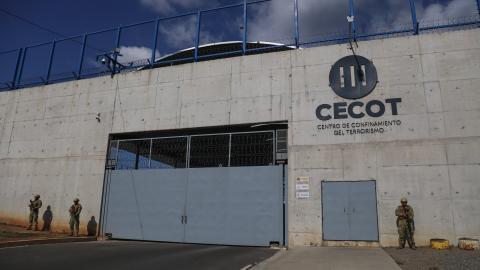After winning a second term as president of El Salvador in 2024, Nayib Bukele pledged to translate security gains into prosperity for the country. Achieving this seemed reasonable. After all, for years, the prevalence of extortion and violence in El Salvador had been a major impediment to growth, reflecting a larger trend in Latin America, where insecurity is estimated to set the region’s economies back by nearly 3.5% of GDP.
But in spite of the impressive turnaround in security, underscored by the sharp drop in homicides since 2015, when El Salvador had one of the world’s highest homicide rates, El Salvador has not been able to get on a positive economic trajectory. Poverty has actually increased during the past few years, in which the country has experienced the most dramatic security improvements. The World Bank now projects El Salvador’s 2025 growth to be the lowest in Central America.
Facing high unemployment, Salvadorans have continued to migrate to the United States in large numbers — slowed only in recent months as a result of stricter U.S. border policies — revealing a lack of confidence in the country’s direction. Bukele’s ambitious vision of transforming El Salvador into a Central American version of Singapore, a one-party state with a flourishing market economy, seems far off.
Bukele’s success in restoring safety to El Salvador’s streets has earned him immense popularity in El Salvador and international recognition. However, the extreme measures he took to subdue street gangs have not given way to any easing of mano dura policies. Instead, El Salvador is entering its fourth year of a “state of exception” in which police can arrest suspects without due process. The country now has the highest incarceration rate in the world, and more than 85,000 alleged criminals are detained indefinitely without warrants or trial dates.
It is largely Bukele’s actions that have stacked the deck against an economic recovery. Bukele has continued to concentrate power, eliminating any restraints on his capricious style of governing, including by replacing Supreme Court judges with loyalists in 2021. Moreover, he has squandered political capital by pursuing flashy initiatives instead of working on the fundamental reforms the country needs. This has raised concerns about the country’s long-term stability and rule of law and doubts about Bukele’s priorities.
Although he campaigned as an anti-corruption outsider, Bukele’s government has acted with increasing lack of transparency, and he has failed to meaningfully address El Salvador’s entrenched corruption networks. The government has awarded lucrative government contracts to political allies through noncompetitive processes. Bukele has eliminated or expelled key anti-corruption bodies, such as the Secretary of Transparency and Anti-Corruption, the anti-corruption unit of the Ministry of Finance, and the U.S.-backed International Commission Against Impunity in El Salvador.
Rather than implementing fundamental reforms to make El Salvador an easier place to do business, Bukele has repeatedly pursued questionable policies with limited economic benefit. His adoption of bitcoin as legal tender in 2021 alienated institutional investors and triggered credit downgrades, with the International Monetary Fund conditioning a new $1.4 billion financial assistance program on the dissolution of El Salvador’s $500 million Strategic Bitcoin Reserve Fund.
Similarly, Bukele’s courting of China yielded a state visit with President Xi Jinping in 2019 and some high-profile infrastructure projects — including a new national library and a soccer stadium scheduled for completion in 2027 — but failed to shift the dynamics of a lopsided trading relationship in which China’s exports to El Salvador have grown consistently while El Salvador’s exports to China have mostly declined. Despite early discussions about a free trade agreement in 2024, there is no plan for resumption of negotiations.
Most recently, Bukele has turned his entrepreneurial instincts to renting El Salvador’s prison capacity to the United States to house deported migrants for a reported $6 million, a paltry sum considering the legal and reputational risk involved. The detention agreement, a high-profile partnership that provides little benefit for his country but brings him close to a powerful leader, is emblematic of Bukele’s governing style, which prioritizes image over delivering benefits to Salvadorans.
El Salvador’s persistent economic woes underscore the central weakness of authoritarian approaches to crime. Once governments choose security policies that undermine rule of law and erode institutions, the imperative to maintain security gains invites the increasingly unrestrained exercise of power, which naturally deters investment and economic development.
Don’t expect El Salvador to become an economic success story; the power and stardom that Bukele enjoys ensure that his country will remain poor, with Bukele in the limelight.















